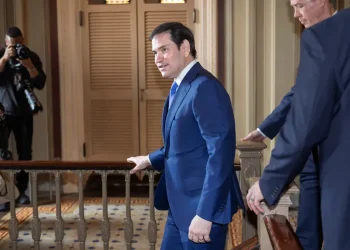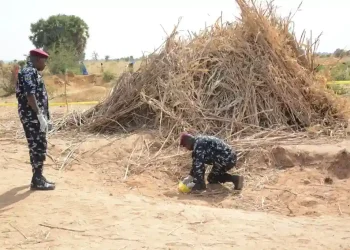Thailand Closes Land Borders to Tourists Amid Rising Tensions With Cambodia
BANGKOK — Tensions between Thailand and Cambodia are escalating fast—and now it’s the tourists who are caught in the crossfire.
On Monday, Thailand began blocking travelers from crossing into Cambodia through its land borders, part of a broader response to a growing diplomatic and military rift between the two neighboring countries. The move comes in the wake of a deadly border clash on May 28, when a Cambodian soldier was killed in a contested area long disputed by both sides.
While Thai and Cambodian officials have pledged to de-escalate, their actions suggest otherwise.
What’s Changing at the Border
Thai Prime Minister Paetongtarn Shinawatra announced the new restrictions on Monday, stating that only those with essential needs—such as students, medical patients, or individuals purchasing vital goods—will be allowed to cross the land border.
She emphasized that the move targets tourists bound for Cambodia’s booming casino industry, but the restrictions appear to apply broadly to all tourists attempting to cross.
Later that day, the Thai army confirmed that the new policy is in effect at all land border checkpoints in five provinces adjacent to Cambodia. Non-essential crossings are being denied.
Cambodia Strikes Back
Cambodia hasn’t taken the border measures lightly. In response, it has:
- Boycotted certain Thai internet services
- Cut off fuel and electricity imports from Thailand—a significant move, as Cambodia relies on Thailand for about 30% of its fuel supplies
These tit-for-tat tactics are fueling uncertainty on both sides of the border, especially in communities dependent on cross-border trade and tourism.
Thailand Eyes Crackdown on Scam Operations
Beyond the border tensions, Thailand is signaling a broader agenda: cracking down on cyber scam operations based in Cambodia. Prime Minister Paetongtarn said her government may restrict exports of goods that could be used to support scam networks, and plans to work with international partners and regional governments to tackle online crime across Southeast Asia.
Thailand has already taken similar action earlier this year against scam hubs in Myanmar, cutting electricity and internet access in towns where illicit operations thrived.
A U.N. report in April named Cambodia as a major base for scams involving fake online romances, bogus investments, and illegal gambling schemes.
Political Fallout at Home
The border crisis is also becoming a political headache for Prime Minister Paetongtarn. Critics say she’s being too soft on Cambodia, especially after a leaked phone call between her and Cambodian Senate President Hun Sen—the country’s powerful former prime minister and a longtime ally of her father, ex-PM Thaksin Shinawatra.
In the leaked call, Paetongtarn referred to the Thai military commander overseeing the disputed border as “an opponent,” a comment that sparked outrage among right-wing nationalists and pro-military activists. Some are now calling for her resignation.
Several nationalist groups are reportedly planning a rally this week to demand she step down, accusing her of appeasing Cambodia and undermining Thailand’s national interests.
This article was rewritten by JournosNews.com based on verified reporting from trusted sources. The content has been independently reviewed, fact-checked, and edited for accuracy, neutrality, tone, and global readability in accordance with Google News and AdSense standards.
All opinions, quotes, or statements from contributors, experts, or sourced organizations do not necessarily reflect the views of JournosNews.com. JournosNews.com maintains full editorial independence from any external funders, sponsors, or organizations.
Stay informed with JournosNews.com — your trusted source for verified global reporting and in-depth analysis. Follow us on Google News, BlueSky, and X for real-time updates.














